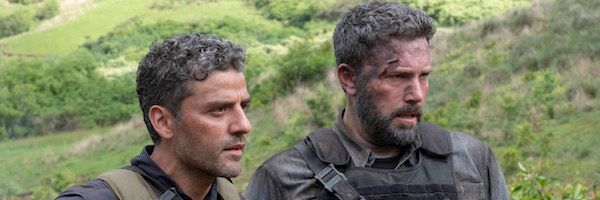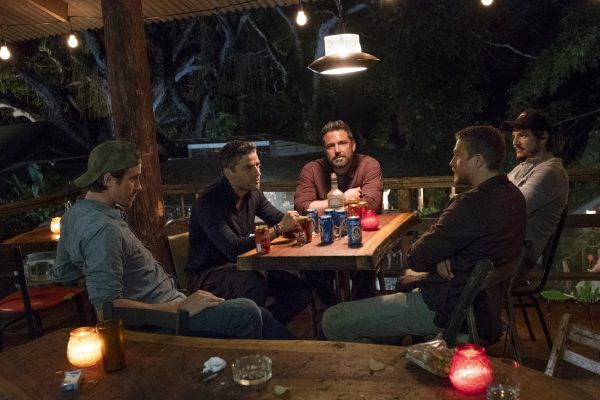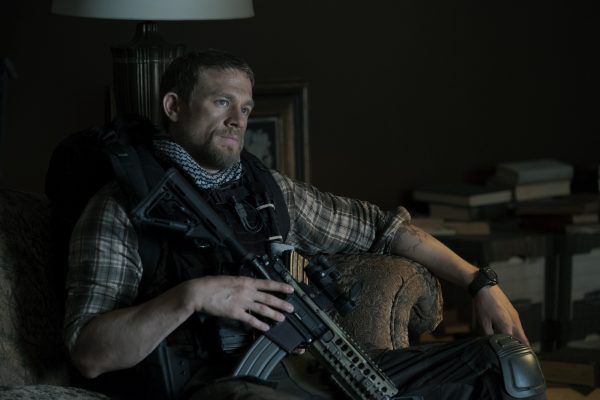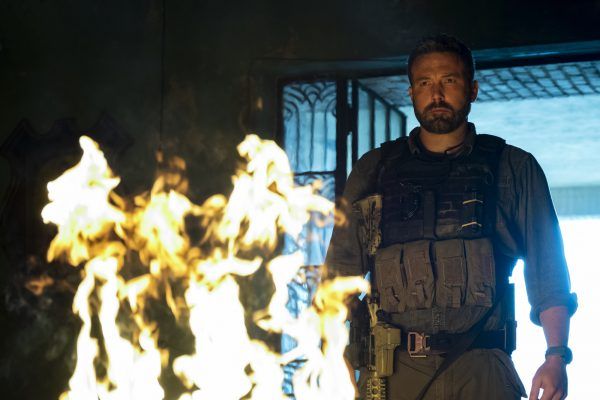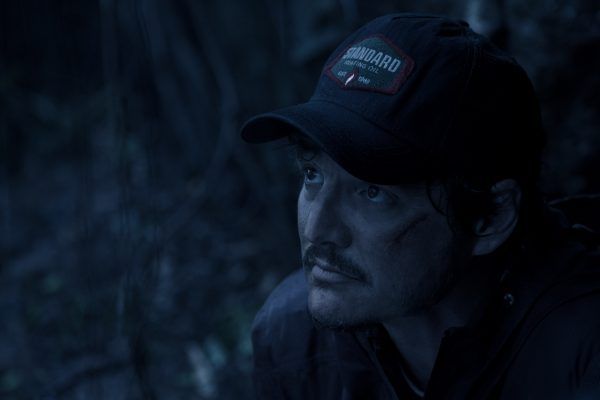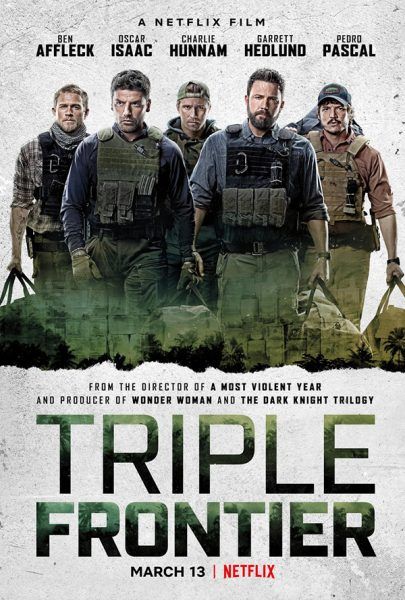Triple Frontier is not the movie you're expecting it to be. The trailers for the long-in-the-works action-thriller went heavy on the helicopter shots, machine gun fire, Inception bwaaaaaah horns, and close-ups of Ben Affleck's concerned, bearded face to paint the picture of an explosive shoot-em-up through the jungle that Schwarzenegger might've signed up for in 1986. The film has these things, for sure—especially the helicopter shots, enough to make Michael Bay straight swoon—but it's also a much smarter, much more meditative film than marketing might have you believe. It's not so much a war movie as it is a movie about getting left behind by war, and trying to carve a path when the skills you've devoted your life to learning usually involve pulling a trigger. It's not a perfect movie by a long shot, but it's certainly one that has more to say than ka-boom.
Oscar Isaac stars as Santiago "Pope" Garcia, a Special Forces agent turned DEA working against the drug cartel in South America. With help from his informant on the inside, Yovanna (Adria Arjona), Garcia learns the whereabouts of notorious drug lord Gabriel Martin Lorea (Reynaldo Gallegos), holed up deep in the jungle with roughly $75 million. A classic get-the-band-back-together plan is hatched. Garcia assembles his old Special Forces crew—Tom "Redfly" Davis (Affleck), Franciso "Catfish" Morales (Pedro Pascal), William "Ironhead" Miller (Charlie Hunnam), and his brother, Bennie Miller (Garrett Hedlund)—to do an off-the-books snatch-and-grab of the drug lord's money.
Again, it's fascinating how hard the movie's synopsis could have played like one of those bargain-bin pyrotechnics displays with a plot seemingly picked randomly out of a hat. ("Jungle...heist?") But the firepower behind the camera pays off. Once conceived as Oscar-winner Kathryn Bigelow's follow-up to The Hurt Locker with a script by that film's writer Mark Boal, the project eventually fell into the very capable hands of A Most Violent Year director J.C. Chandor, who shares a co-writing credit with Boal. These are all storytellers interested not only in violence but the effects it has on the professionally violent, and it shows through these five characters that venture into the woods. These aren't men who turn villages into target practice without asking questions, they're tacticians who specifically plan to kill as little people as the plan allows. "If we do our jobs right, we will be committing one murder and one armed robbery," Affleck's Davis explains in the most matter-of-fact way possible, which is both a credit to his efficiency and comment on how easy it becomes to boil death down to numbers.
But the deadliest number in the movie is $250 million, the actual amount the crew finds in Lorea's jungle hideaway, and Triple Frontier is at its most interesting when it plays around with the theme of greed. Once the cash has been bundled into bags, the escape sees the five men carrying it from place to place like a cursed object; the money eventually seems like the ring from Lord of the Rings spread out over hundreds of stacked bills. Whenever the former Armed Forces have to resort to violence to keep moving, they just skim a few thousand dollars off the total haul and make the problem go away. What's the death of a family member on a poverty-stricken South American farm when a man in tactical gear hands you $50,000 on the spot?
Those are the type of questions Triple Frontier asks in between big action set-pieces, which are all handled deftly if not entirely interestingly by Chandor. (I've seen enough Jeep Wranglers flipped over a dirt road to last me a lifetime.) But the movie's biggest failure by far is in giving the five main characters any particularly distinct personalities. They're all given a "thing" back home to set up some backstory and motivation for joining the heist. Bennie is an MMA fighter, which never really comes into play. Morales has been grounded from being a pilot because of a cocaine charge, but that doesn't affect much. Davis is going through a divorce, but it's honestly hard to tell if he cares. Once they all arrive in South America, they all blend together into similar characters with near-identical ideologies. If you watched Triple Frontier with your eyes closed, you'd probably only be able to differentiate who was saying what through the very recognizable actors in these roles.
And for their part, those actors do a great job with the material. There's an easy chemistry between them that feels lived-in, which sells the camaraderie better than the script does. No one ever breaks away as the "bad" member of the group—which is what you expect when that much money is involved—but Affleck fascinatingly toes the line in a quiet way. A lot of the actor's later roles, especially Gone Girl, have been filled with this subtle, unassuming every-man menace, and it's used masterfully here to sow distrust in "Redfly" Davis even when the character isn't necessarily giving you a reason to.
I wish there were more of those specific character quirks in Triple Frontier, because five unique personalities being pitted against the impossible is just more interesting than one combined talking head. That, together with some truly obvious music cues—there should be a fine in Hollywood for every time "Run Through the Jungle" plays while characters run, through the jungle—results in a mixed bag here. But I'll admit I was thinking about the film's quieter interactions, plus one genuinely shocking moment late in the runtime, long after the credits rolled. It's worth a watch for anyone who enjoys a brain atop their brawn.
Rating: B
Triple Frontier will be available to stream on Netflix on March 13th.

